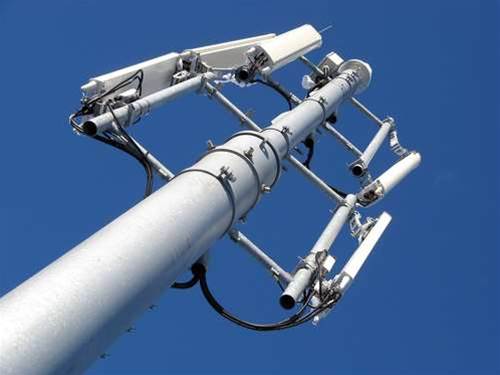Optus has reported the results from phase one of its Long Term Evolution (LTE) network field trial in Sydney's north, claiming download speeds hit in excess of 50 Mbps.

The phase one trial network consists of two base stations at Gordon and Pymble together with the core network hosted by Nokia-Siemens Networks (NSN) at the vendor's Pyrmont offices.
The trial network architecture includes NSN's Flexi base stations, network gateway and network server products.
Optus said the trial ran in the 2100 MHz band using 10 MHz of paired spectrum.
It was understood that the carrier had limited phase one testing to download and upload speeds, ping times and basic handover between the two LTE base stations.
Full load testing and 2G/3G/LTE interoperability would be held over for the second phase of the trial which is due to kick off later this year.
Engineers used class-3 modems to access LTE services on the test network.
These were capable of achieving 100 Mbps speeds with 20 MHz of spectrum - but because the Optus trial network used only 10 MHz, the maximum download speeds achieved were around 73 Mbps peak (in the labs) and "in excess of 50 Mbps" in 'drive tests' within the coverage area.
Optus did not disclose any further preliminary results it had gathered from the drive tests, nor how many consecutive users were accessing the network when it achieved the quoted download speeds.
In a live test in Sydney today, the telco achieved speeds of around 44 Mbps for a 2-3 GB file download (the same file downloading via the 3G network saw speeds fluctuate between 1 and 4 Mbps).
Gordon and Pymble were chosen in part because they were metropolitan suburbs affected by hilly terrain.
"In the second half of the calendar year we'll be starting the second phase of the trial," Optus mobile network director Andrew Smith said.
"[Phase two] has many more base stations. That will let us load up the network.
"We'll also see how [the trial network] interacts with our 2G and 3G networks."
This was understood to include handovers between 2G, 3G and LTE networks.
NSN deal
Optus said it would use NSN technology in both phases of its local trial.
The results would be fed into parent SingTel's LTE trial, of which Optus is a participant.
Each region would run its trial on a different vendor's kit. Other vendors to participate are Alcatel-Lucent, Ericsson, Huawei, NEC and ZTE.
Smith said it was too early to disclose whether SingTel planned to standardise its LTE kit vendor across the region.
Optus' announcement today came hot on the heels of rival Telstra completing the first phase of its own LTE trials, also with NSN technology.
Telstra said it had achieved a 100 Mbps peak downlink on its test network in regional Victoria using 20 MHz of the 2.6 GHz mobile spectrum.
The average downlink speed was 88.1 Mbps, while uplinks averaged 29.6 Mbps, Telstra said.
Telstra has also embarked on LTE tests with other kit vendors, recently revealing it has started testing with Huawei.


_(23).jpg&h=140&w=231&c=1&s=0)

.png&h=140&w=231&c=1&s=0)






 iTnews Executive Retreat - Security Leaders Edition
iTnews Executive Retreat - Security Leaders Edition
 iTnews Cloud Covered Breakfast Summit
iTnews Cloud Covered Breakfast Summit
 Melbourne Cloud & Datacenter Convention 2026
Melbourne Cloud & Datacenter Convention 2026
 The 2026 iAwards
The 2026 iAwards











_(1).jpg&h=140&w=231&c=1&s=0)



